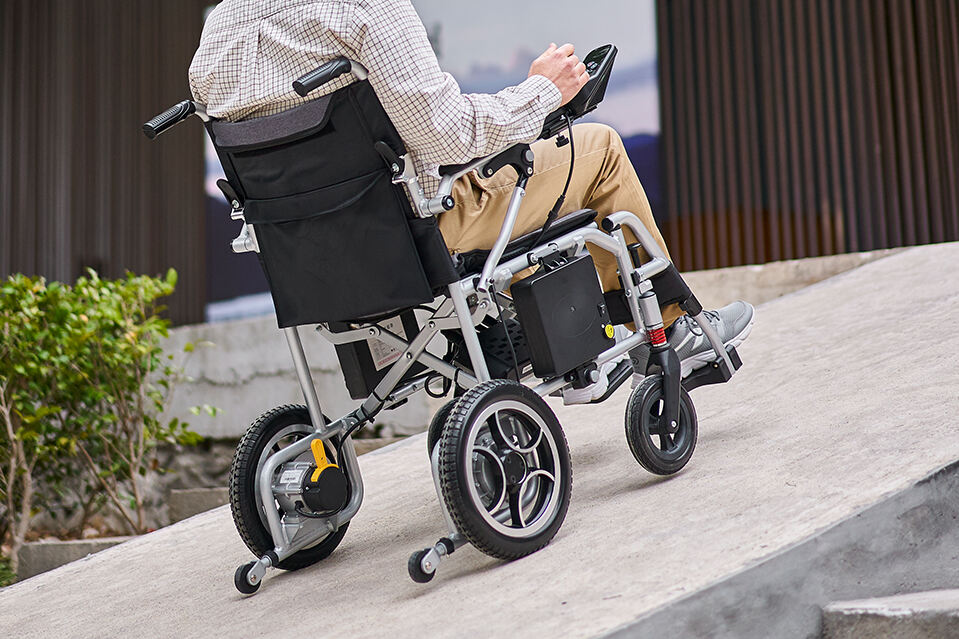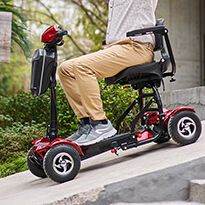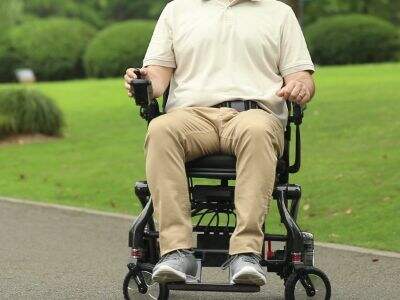Lithium or lead-acid, when it comes to looking for a baichen wheelchair battery, these are the two types available. These batteries have important differences that you should be aware of before you choose one.
The first major difference between lithium and lead-acid batteries is durability.
Compared to lead-acid batteries, lithium batteries have longer life cycles. That means you’ll likely not need to switch your battery in the future if you choose a lithium battery. In contrast, lead-acid batteries are typically more affordable to purchase initially, but may require replacement more frequently and will ultimately cost you more money down the road.
Although Baichen offers battery options based on how far you can get on a single charge — 20 miles, 40 miles and 60 miles.
The mileage tells you how long you can drive before the battery needs recharging. If you mostly only use your wheelchair for short takes near your place, a 20-mile battery might be enough. But if you plan to keep using your wheelchair for longer trips, or even every day, it may be worthwhile to invest in a 40 or 60 mile battery operated mobility scooters for durability and peace of mind.
Now, let’s take a gander at the 20, 40, and 60-mile wheelchair batteries.
They all have their pros and cons. The 20-mile battery is lightweight and compact, easy to transport and affix to your Carbon Fibre Power Wheelchair. But it may not provide enough range to be viable for either longer trips or day-to-day use. A 40-mile battery is a decent balance of power and easy carry, and it’s run around a lot by many users. Finally the 60-mile battery provides ultimate durability and range but may be heavier and larger than the other options.
There are a few things to consider when discussing lithium vs lead acid wheelchair battery options.
They’re also much lighter and last longer, as well as having a longer lifespan than lead-acid batteries. They also charge more quickly and retain that charge better over time. Then again, lead-acid batteries are more affordable upfront and generally have parts that are easier to source when it comes time for replacement. But they’re heavier, bulkier and may need to be replaced more frequently.
If you want to use a Baichen wheelchair, you will need to choose the best battery.
For average daily use where portability and long battery life are most important, a lithium battery powered mobility scooter is likely your best option. If you are on a tight budget and use your wheelchair only occasionally, a lead-acid battery may be sufficient. Consider what you need and what you like (or dislike) when deciding. You can also consult our Baichen representative for information about battery options, and which one fits your wheelchair.
Table of Contents
- The first major difference between lithium and lead-acid batteries is durability.
- Although Baichen offers battery options based on how far you can get on a single charge — 20 miles, 40 miles and 60 miles.
- Now, let’s take a gander at the 20, 40, and 60-mile wheelchair batteries.
- There are a few things to consider when discussing lithium vs lead acid wheelchair battery options.
- If you want to use a Baichen wheelchair, you will need to choose the best battery.
 EN
EN
 AR
AR
 BG
BG
 HR
HR
 CS
CS
 DA
DA
 NL
NL
 FI
FI
 FR
FR
 DE
DE
 EL
EL
 IT
IT
 JA
JA
 KO
KO
 NO
NO
 PL
PL
 PT
PT
 RO
RO
 RU
RU
 ES
ES
 SV
SV
 TL
TL
 IW
IW
 ID
ID
 LV
LV
 LT
LT
 SR
SR
 SK
SK
 SL
SL
 VI
VI
 HU
HU
 TH
TH
 TR
TR
 FA
FA
 GA
GA
 CY
CY





